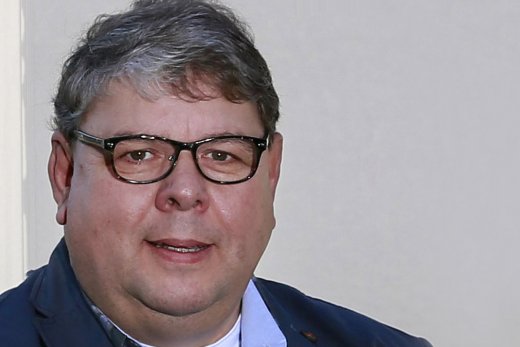15/07/2016
SensUs Interviews: Mike Martens
In this edition of SensUs Interviews, we spoke with the managing director of Future Diagnostics, Mike Martens. Future Diagnostics is an assay development company and the first sponsor of SensUs. We spoke with Mike Martens about the future of biosensing and how SensUs can make a difference.
Can you tell something about yourself? Who are you and what is your role within Future Diagnostics?
"My name is Mike Martens and I have been managing director of Future Diagnostics for four years now. Before that, I have been the Chief Technology Officer of Future Diagnostics and I was one of the founders of the company. I studied Biomedical Sciences at the University of Amsterdam. Then I moved to the Radboud University, where I performed my PhD research in the lab of the Department of Surgery, which I finished in '91. Thereafter I started working as a scientist in the industry at Nichols Institute Diagnostics, where I developed an EPO immunoassay, which is now used as a doping agent. Within that organization I later became R&D manager. In 1996, the R&D facility in the Netherlands was fully moved to the USA, leaving only a sales organization. At that time, five of my colleagues from that R&D department and I started Future Diagnostics in May '97. Right now, there are 105 employees at Future Diagnostics, of which most joined in the last three years."
How is your company involved in the field of biosensing?
"That actually started in 2005 when I met Menno Prins. He approached us and asked whether we could be of help in developing reagents for a new biosensor technology. From that time, we have been involved in the Minicare of Philips that launched their first assay last month."
Have you had more projects within the biosensing field?
"Yes, we have had other projects concerning different detection technologies. We have done several proofs of concept related to other devices that used innovative technologies for detection, also related to microfluidic devices. We have had two Marie Curie fellows that worked here on a microfluidic device with a Eureka subsidy."
How do you see the future of biosensing? Which innovations are needed and which long-term developments do you foresee?
"I think within a certain time period – let's say 25 years – everybody will have a device at home to measure a certain condition. Obviously, this would initially only be the case for patients who have had certain treatments or have some type of disease that requires monitoring on a regular basis. This would for example be a device that you could take out of your refrigerator, put a drop of blood in a cartridge, and the results will be sent via WiFi to the doctor that is treating the patient. He or she will consequently ask the patient to come in or not, depending on the result."
Which patient groups will benefit the most from these developments? Could you give some examples of patient groups?
"Candidates could be patients who have survived cancer, or patients with a cardiovascular disease. Basically everyone of whom you would like to monitor either the progression or recurrence of the disease will benefit from these developments. And with this benefit, I mean the fact that the current logistics that is needed – a blood draw, the waiting for the result et cetera – will disappear. Biosensing should be made so easy that it is goof-proof and that everybody can do it."
What do you think of the SensUs concept and its vision? What is the interest for Future Diagnostics?
"When I heard of SensUs for the first time, I was very intrigued. It reminded me of competitions that are ongoing in other areas, like the Robocup and the World Solar Challenge. That is a very nice way to involve young students with a lot of ideas, focused on a certain area. I think it will generate new ideas from which the industry can learn. Hence we were very interested in sponsoring the event, because as a company we are innovative and we want to know what is happening in the world of biosensing. Consequently, we as Future Diagnostics want to be positioned so that we can do something with the new ideas that will be generated."
Do you have an advice or a question for SensUs students and stakeholders?
"I am very much looking forward to the results and I really like the initiative. On paper, it may seem like a very simple thing to do, but in practice it takes a lot of perseverance to build a working biosensor. SensUs can be a very good way to make the young generation come up with new ideas and technologies. I think that students may have completely different views than companies. Students are usually very open and their thinking is not limited to already established ideas. They can stimulate each other to go to high levels and may generate new insights. Therefore, I am very much looking forward to the public event on the 10th of September and to the discussions with the student teams!"

Facebook
YouTube
LinkedIn
Instagram